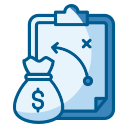Managing personal finances efficiently is a crucial life skill that empowers individuals to achieve both short-term and long-term goals. Effective budgeting and saving strategies allow you to handle daily expenses, prepare for unexpected emergencies, and work toward financial independence. Understanding and implementing these techniques can pave the way to a more secure financial future, reduce stress related to money matters, and provide the confidence to make informed financial decisions. The following sections explore proven strategies to help you develop healthy budgeting habits and cultivate a mindset focused on saving money.
Setting Clear Financial Goals
Identifying what’s truly important to you is key to effective financial goal-setting. Take some time to reflect on your core values and aspirations. By distinguishing between needs and wants, you can allocate your money more intentionally and ensure that your budget reflects what matters most to you. This understanding will help guide your financial decisions through both big and small purchases.


Analyzing Your Income and Expenses
Before creating a budget, it is essential to know your exact income. This includes your regular salary, side gigs, freelance work, or any other sources of money. Understanding your monthly take-home income provides a starting point for planning and ensures you don’t overestimate what you can spend or save. Regularly reevaluating your income is especially important if your earnings fluctuate.
Previous
Next

Financial experts generally recommend saving between three to six months’ worth of living expenses in your emergency fund. Assess your household’s cost of essentials, including rent, utilities, food, and insurance, to set an appropriate target. The optimal amount may vary based on job security, family size, and personal risk tolerance, so tailor your goal to fit your circumstances for maximum safety.

Automating contributions to your emergency fund can make the process virtually effortless. Set up a recurring transfer from your main account to a dedicated savings account as soon as you receive income. This method prioritizes saving before you have the chance to spend, helping you reach your goal faster and avoid the temptation to skip contributions during tight months.

It’s important to use your emergency fund only for genuine emergencies—situations that are unexpected and financially impactful. Avoid dipping into this reserve for routine expenses or planned purchases. Reserve its use for critical needs to ensure your safety net remains intact when you truly need it most, and replenish the fund promptly whenever it is utilized.
Reducing Unnecessary Expenses
Many people underestimate how much their recurring subscriptions add up to each month—be it streaming services, gym memberships, or magazines. Take inventory of all your subscriptions and assess which ones you barely use or could live without. Cancelling underutilized services can free up money for higher priorities while ensuring you get real value from the ones you keep.
Taking Advantage of Savings Accounts
Choosing the right type of savings account can boost your savings through better interest rates and incentives. High-yield savings accounts, for instance, can offer significantly higher returns than traditional ones. Research different options, compare fees and features, and pick an account that aligns with your needs to make the most of every dollar saved.
Regularly Reviewing Your Progress
Periodically assessing your savings progress allows you to stay on track and adjust as needed. Set a schedule to review your balances, contributions, and goals—this could be monthly or quarterly. Regular check-ins keep you motivated, help you spot challenges or setbacks early, and make it easier to make course corrections for continuous progress.
Leveraging Windfalls and Extra Income
Any unexpected windfall, such as tax refunds, bonuses, or monetary gifts, presents an excellent opportunity to boost your savings. While it might be tempting to spend such money immediately, directing a significant portion to your savings goals can accelerate your path to financial stability. Consider viewing these gains as steppingstones to a more secure future.
Tracking and Adjusting Your Budget
Using Technology to Monitor Finances
There are many digital tools and apps available to simplify the process of tracking income and expenses. By linking accounts and categorizing transactions, these technologies provide real-time insights into your spending patterns. Embracing such tools can save time, increase accuracy, and help you make wiser decisions based on up-to-date information.
Making Regular Budget Reviews
Set aside time each month to review your budget versus actual spending. This process helps you identify areas where you may be overspending, as well as categories where you have room to save more. Regular reviews reinforce good habits, highlight opportunities for improvement, and ensure that your financial plan adapts to any recent life changes.
Responding to Life Changes
Major life events, such as moving, starting a family, or changing jobs, often require a rethink of your financial plan. When such changes occur, revisit your budget and adjust allocations as necessary. Being proactive in response to shifting needs prevents financial strain and supports continued progress toward your goals, no matter what life brings.
